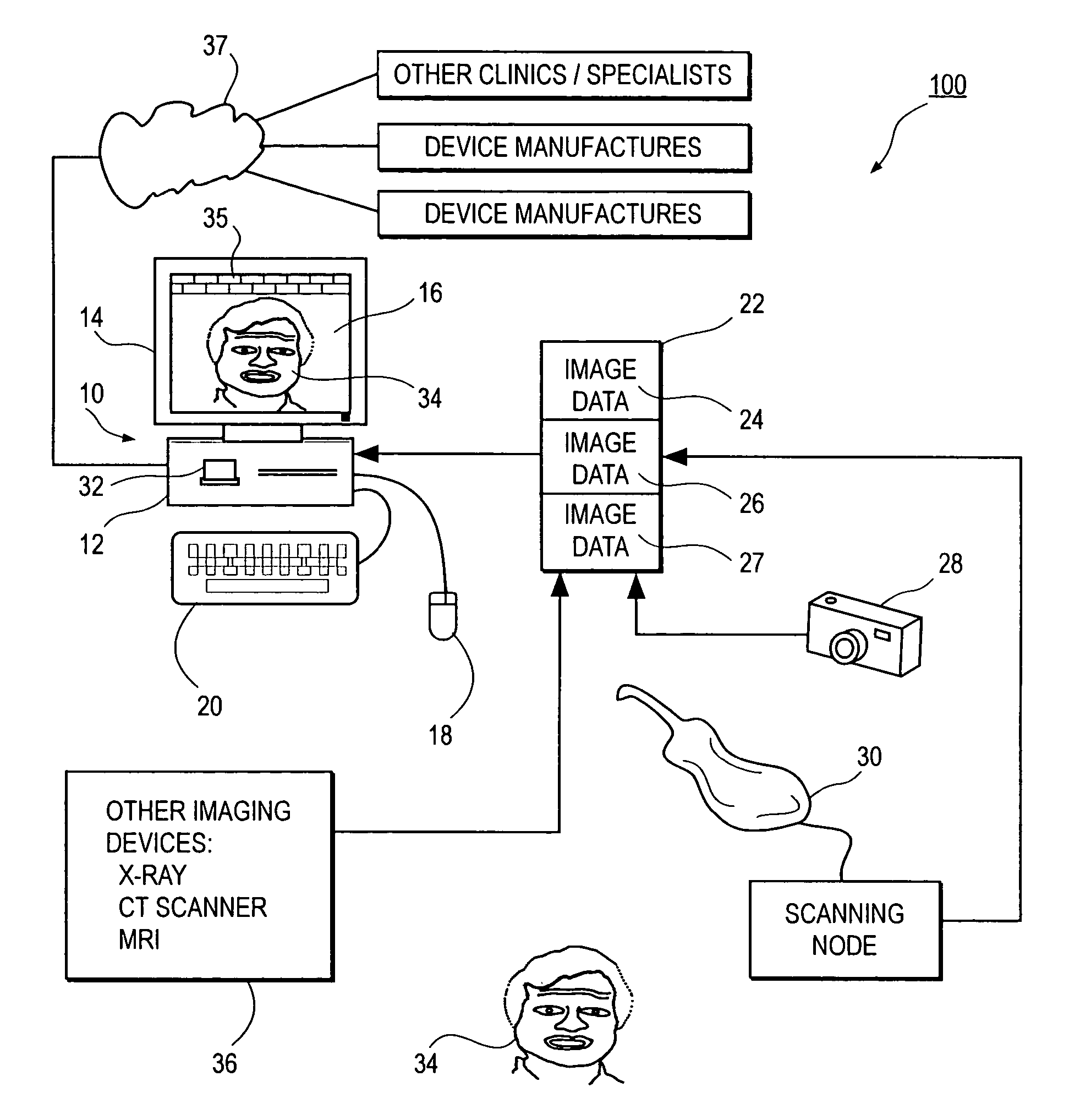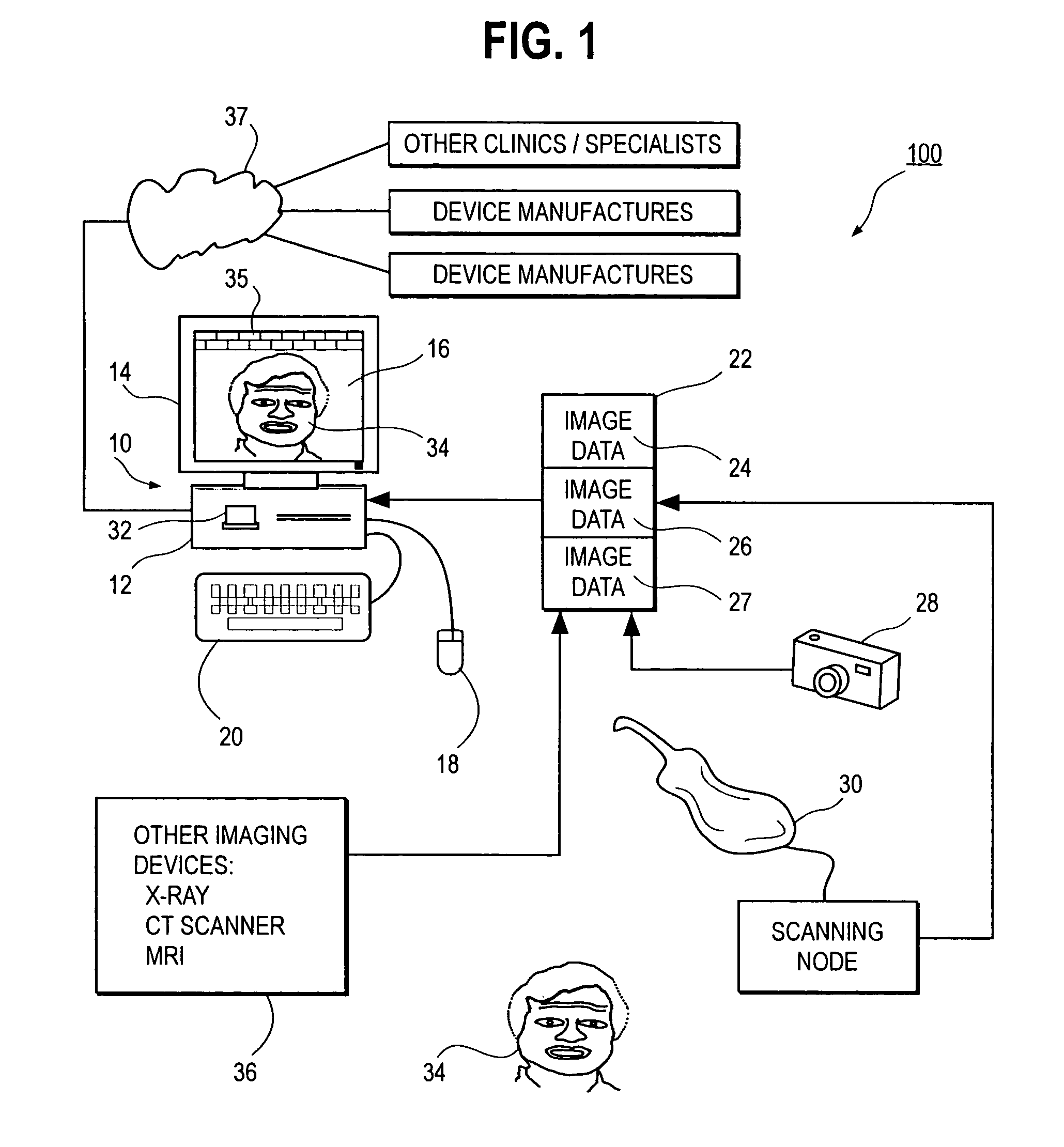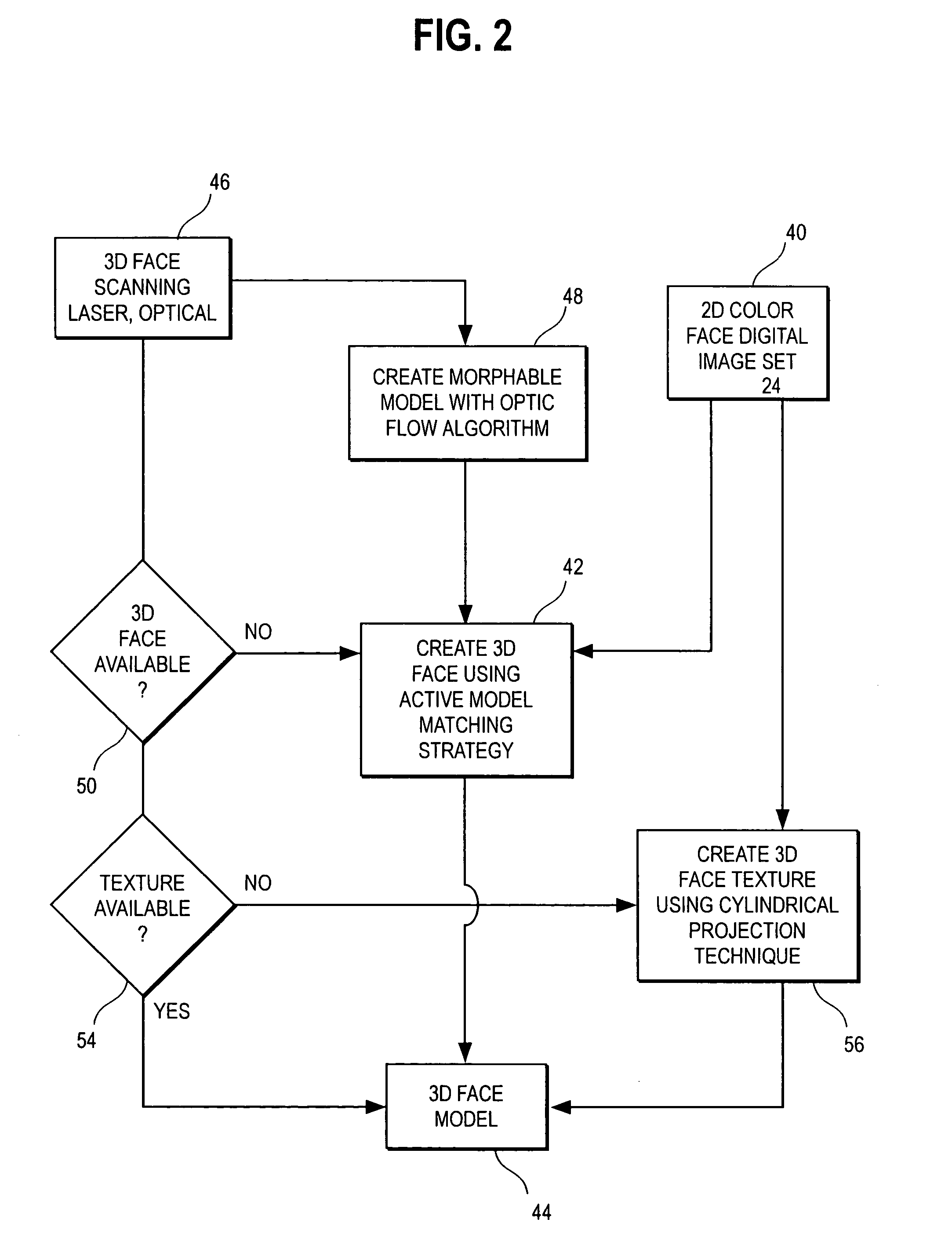Method and system for integrated orthodontic treatment planning using unified workstation
a workstation and integrated technology, applied in the field of computerized orthodontic treatment planning, can solve the problems of large volume of images and data involved, limited functionalities and scope, and large amount of manual work involved in these steps
- Summary
- Abstract
- Description
- Claims
- Application Information
AI Technical Summary
Benefits of technology
Problems solved by technology
Method used
Image
Examples
Embodiment Construction
[0053]Before describing the treatment planning features of this invention in detail, an overview of a unified workstation will be set forth initially. The workstation, in a preferred embodiment, provides software features that create two dimensional and / or three-dimensional virtual patient model on a computer, which can be used for purposes of treatment planning in accordance with a presently preferred embodiment.
[0054]Many of the details and computer user interface tools which a practitioner may use in adjusting tooth position, designing appliance shape and location, managing space between teeth, and arriving at a finish tooth position using interaction with a computer storing and displaying a virtual model of teeth are set forth in the prior application Ser. No. 09 / 834,412 filed Apr. 13, 2001, and in published OraMetrix patent application WO 01 / 80761, the contents of which are incorporated by reference herein. Other suites of tools and functions are possible and within the scope o...
PUM
 Login to View More
Login to View More Abstract
Description
Claims
Application Information
 Login to View More
Login to View More - R&D
- Intellectual Property
- Life Sciences
- Materials
- Tech Scout
- Unparalleled Data Quality
- Higher Quality Content
- 60% Fewer Hallucinations
Browse by: Latest US Patents, China's latest patents, Technical Efficacy Thesaurus, Application Domain, Technology Topic, Popular Technical Reports.
© 2025 PatSnap. All rights reserved.Legal|Privacy policy|Modern Slavery Act Transparency Statement|Sitemap|About US| Contact US: help@patsnap.com



